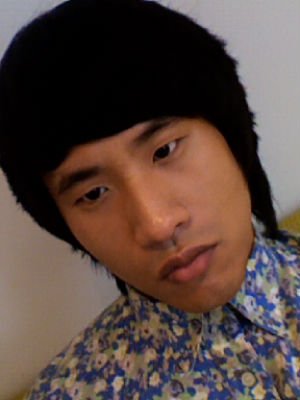Department of English
Faculty of Arts, Chulalongkorn University
The
Department of English
Cordially
invites you to an afternoon talk:
The
New Woman, Marriage, and Individualism in the Novels of
Mary
Ward, Sarah Grand, and Lucas Malet
By
Tapanat Khunpakdee
Re-Packaged
and Re-Sold: Shakespeare as a Cultural Product
By
Poonperm Paitayawat
On
Thursday, December 17, 2009
1–2:30
p.m.
BRK
room 708
Refreshments
served
(Talk will be in English.)
Abstracts
The
New Woman, Marriage, and Individualism in the Novels of Mary Ward, Sarah Grand,
and Lucas Malet
Tapanat
Khunpakdee
The
New Woman as a discursive figure emerged during the 1890s in a journalistic
debate, generating much controversy. Both critics and novelists of the late
nineteenth century were conscious of the significance which the figure of the
New Woman carried. As a result, a great body of literature and criticisms was
produced, attracting attention as well as detraction well into the twentieth
century. The chosen women authors — Mary Ward, Sarah Grand, and Lucas Malet
— wrote novels which became best-sellers throughout England, the United States
and Europe, their most important works being concentrated in the last decade of
the nineteenth century. Given that Grand was the only writer acknowledged by
contemporaries, and has been recognised by scholars of the present time, as the
New Woman writer, the question rests in the inclusion of Ward and Malet, who
were famous for conservatism and aestheticism respectively. By exploring such
problematic disparities among the three writers, who similarly chose the New
Woman as the subject of their novels, this paper hopes to demonstrate how central the figure of
the New Woman was, not only as a reflection of imminent social and political
changes, but also as a revelation of the ways in which writers of differing
views were motivated by and responded to this controversial figure, as perceived
through the repetitive pattern formed by the relationship between the heroine(s),
individualism, and marriage in each novel, which became the cause of alarm and
agitation among many late Victorian feminist activists.
| Tapanat Khunpakdee is a lecturer at the Department of English, Chulalongkorn University. She holds a BA (Hons) in English from the University of Sussex and an MA in Victorian Media and Culture from Royal Holloway, University of London. Currently she is a PhD student in Nineteenth-Century Studies at Royal Holloway. |
Re-Packaged
and Re-Sold: Shakespeare as a Cultural Product
Poonperm
Paitayawat
The
special lecture “Re-Packaged and Re-Sold: Shakespeare as a Cultural Product”
is one relevant answer to the question “Why do we need Shakespeare?” It
will propose the discursive cultural significance and insignificance of
Shakespeare in contemporary British cultures as opposed to the intellectual
importance of his works.
The
first part “Re-Packaged” will trace the development of Shakespeare and his
cultural status from a commercial playwright, a quintessential poet, to the
overrated object of idolatry, all of which influence how Shakespeare is
perceived and understood in contemporary British culture. The development, as it
will be argued, owes much to the merging of two seemingly different traditions:
theatrical and literary, both of which quote and re-quote, manipulate and
appropriate Shakespeare at their will.
The second part “Re-Sold” will discuss the evolution of Shakespeare the person “He” into the new, rising status of Shakespeare the cultural product “It” mass-produced and ready to be auctioned off to tourists and culture enthusiasts. The lecture will investigate key aspects of Shakespeare in contemporary British culture(s) that coincide with the studies of the Bard’s works, including Shakespeare in mandatory school curricula, Shakespearean theatres and the tourism of Shakespeare. Considering these particular cases, the cultural importance of Shakespeare is intertwined with the economic value.
In conclusion, culture dictates that Shakespeare must sell to survive and at the same time the popularity of Shakespeare becomes instrumental in defining “British Culture.” By looking through the lens of Shakespeare as a cultural product in British culture, I hope to propose ways Shakespeare studies in Thailand can develop and how international students can approach Shakespeare in and out of a literary context.
 |
Poonperm
Paitayawat
holds two Masters Degrees (Merit): one in Shakespeare Studies (Birmingham) and
the other in British Theatre Culture (Royal Holloway, London), and is an MPhil/PhD
candidate in Renaissance Studies at Warwick University. He is also a UK art
journalist and freelance theatre critic. |
Last updated December 15, 2009